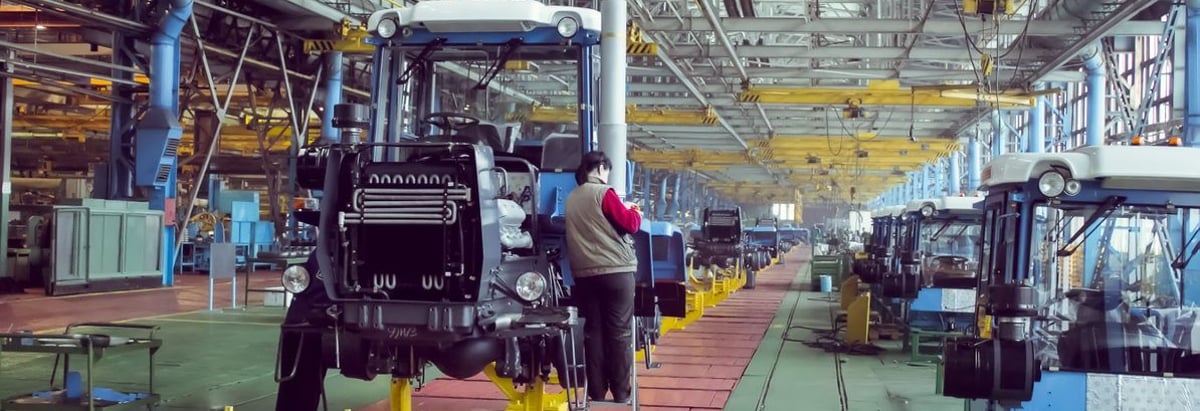Stock Analysis

David Iben put it well when he said, 'Volatility is not a risk we care about. What we care about is avoiding the permanent loss of capital.' So it seems the smart money knows that debt - which is usually involved in bankruptcies - is a very important factor, when you assess how risky a company is. Importantly, Lindsay Corporation (NYSE:LNN) does carry debt. But the real question is whether this debt is making the company risky.
What Risk Does Debt Bring?
Debt is a tool to help businesses grow, but if a business is incapable of paying off its lenders, then it exists at their mercy. Part and parcel of capitalism is the process of 'creative destruction' where failed businesses are mercilessly liquidated by their bankers. However, a more frequent (but still costly) occurrence is where a company must issue shares at bargain-basement prices, permanently diluting shareholders, just to shore up its balance sheet. Of course, debt can be an important tool in businesses, particularly capital heavy businesses. When we examine debt levels, we first consider both cash and debt levels, together.
See our latest analysis for Lindsay
What Is Lindsay's Net Debt?
As you can see below, Lindsay had US$115.3m of debt, at November 2023, which is about the same as the year before. You can click the chart for greater detail. However, it does have US$175.7m in cash offsetting this, leading to net cash of US$60.3m.
How Strong Is Lindsay's Balance Sheet?
Zooming in on the latest balance sheet data, we can see that Lindsay had liabilities of US$142.0m due within 12 months and liabilities of US$155.1m due beyond that. Offsetting this, it had US$175.7m in cash and US$143.7m in receivables that were due within 12 months. So it actually has US$22.4m more liquid assets than total liabilities.
This state of affairs indicates that Lindsay's balance sheet looks quite solid, as its total liabilities are just about equal to its liquid assets. So while it's hard to imagine that the US$1.27b company is struggling for cash, we still think it's worth monitoring its balance sheet. Simply put, the fact that Lindsay has more cash than debt is arguably a good indication that it can manage its debt safely.
But the other side of the story is that Lindsay saw its EBIT decline by 6.9% over the last year. That sort of decline, if sustained, will obviously make debt harder to handle. When analysing debt levels, the balance sheet is the obvious place to start. But ultimately the future profitability of the business will decide if Lindsay can strengthen its balance sheet over time. So if you want to see what the professionals think, you might find this free report on analyst profit forecasts to be interesting.
Finally, a company can only pay off debt with cold hard cash, not accounting profits. While Lindsay has net cash on its balance sheet, it's still worth taking a look at its ability to convert earnings before interest and tax (EBIT) to free cash flow, to help us understand how quickly it is building (or eroding) that cash balance. In the last three years, Lindsay's free cash flow amounted to 42% of its EBIT, less than we'd expect. That's not great, when it comes to paying down debt.
Summing Up
While we empathize with investors who find debt concerning, you should keep in mind that Lindsay has net cash of US$60.3m, as well as more liquid assets than liabilities. So we don't have any problem with Lindsay's use of debt. Over time, share prices tend to follow earnings per share, so if you're interested in Lindsay, you may well want to click here to check an interactive graph of its earnings per share history.
If, after all that, you're more interested in a fast growing company with a rock-solid balance sheet, then check out our list of net cash growth stocks without delay.
New: AI Stock Screener & Alerts
Our new AI Stock Screener scans the market every day to uncover opportunities.
• Dividend Powerhouses (3%+ Yield)
• Undervalued Small Caps with Insider Buying
• High growth Tech and AI Companies
Or build your own from over 50 metrics.
Have feedback on this article? Concerned about the content? Get in touch with us directly. Alternatively, email editorial-team (at) simplywallst.com.
This article by Simply Wall St is general in nature. We provide commentary based on historical data and analyst forecasts only using an unbiased methodology and our articles are not intended to be financial advice. It does not constitute a recommendation to buy or sell any stock, and does not take account of your objectives, or your financial situation. We aim to bring you long-term focused analysis driven by fundamental data. Note that our analysis may not factor in the latest price-sensitive company announcements or qualitative material. Simply Wall St has no position in any stocks mentioned.
About NYSE:LNN
Lindsay
Provides water management and road infrastructure products and services in the United States and internationally.

